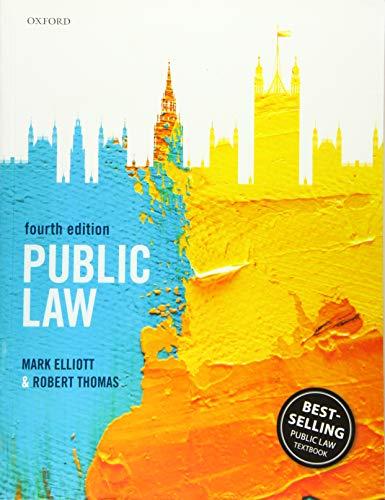Question
What was the result in the Rakestraw v. Rodriguez case referenced in the textbook, a case in which a husband had forged his wife's signature
What was the result in theRakestraw v. Rodriguezcase referenced in the textbook, a case in which a husband had forged his wife's signature to obtain a loan to start a grocery store?
Multiple Choice
- The court ruled that the wife's actions in sharing in profits and in helping run the business effectively voided her signature.
- The court ruled that the wife's actions in sharing in profits and in helping run the business effectively rescinded her signature.
- The court remanded the case for further findings regarding whether the wife gave her husband express authority to sign her name.
- The court ruled that the wife's actions in sharing in profits and in helping run the business effectively ratified her signature.
- The court affirmed the criminal liability of the husband, but remanded the case for further findings regarding the propriety of the husband's prison sentence for forgery.
Claims to Funds. Paul had a great job as a bank executive. Unfortunately, his bank came under scrutiny by federal regulators, and although Paul had done nothing illegal, he ended up being fired. Unfortunately for Paul, he had a number of debts. Among his assets were a house worth $250,000 on which he owed $150,000 to a bank that held a security interest; three vehicles; an expensive watch worth $5,000; and $120,000 in an Individual Retirement Account (IRA). He owed $900 per month in child support to his ex-wife Suzy and was behind on payments in the amount of $1,800. He also owed $2,000 in wages consisting of four months of back pay to Bob who took care of Paul's landscaping needs and swimming pool care. Unable to find a job and believing that he had no other option, Paul filed for Chapter 7 bankruptcy. All creditors angrily demanded payment from liquidation of Paul's assets. Paul, on the other hand, claims that he needs all the above-mentioned assets and that he should not have to give up anything. Only federal bankruptcy exemptions apply to Paul's case. Which of the following is true under bankruptcy law regarding Paul's claim to the watch?
Multiple Choice
- The watch will remain Paul's property if he can establish that it is needed in his profession.
- The watch will remain Paul's property because it is automatically exempt.
- Paul's interest in the watch is exempt, but only up to $1,550.
- The watch will be sold, with the entire proceeds being used to satisfy the claims of creditors.
- Paul's interest in the watch is exempt, but only up to $500.
Step by Step Solution
There are 3 Steps involved in it
Step: 1

Get Instant Access to Expert-Tailored Solutions
See step-by-step solutions with expert insights and AI powered tools for academic success
Step: 2

Step: 3

Ace Your Homework with AI
Get the answers you need in no time with our AI-driven, step-by-step assistance
Get Started


